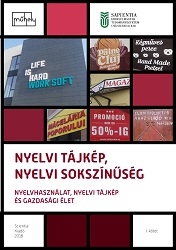
We kindly inform you that, as long as the subject affiliation of our 300.000+ articles is in progress, you might get unsufficient or no results on your third level or second level search. In this case, please broaden your search criteria.


A collection of polite phrases most frequently used by Poles at the turn of the 20th and 21st century, and their classification based on functions (greetings, wishes, salutations, farewells) and the reactions produced by them. Arranged into encyclopaedia-style entries, the phrases used by various generations become, through tradition, fixed in a specific form, recalled by language users from memory. The form, analyzed from historical perspective, evolves. Modifications of familiar phrases systematically created by young generations, often functioning very briefly, later lose their expressiveness, disappear and new ones emerge.
More...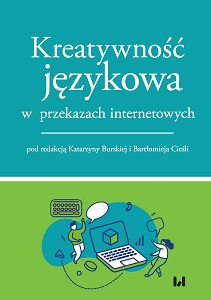
This volume is a continuation of deliberations published in previous books in the series on verbal originality. The present collection relates to broadly defined cyberculture viewed from the perspective of language, text and genology, i.e. literary genre analysis. It is preceded by an article introducing the problem of creativity, pointing to different ways of understanding it in contemporary linguistic discourse. The inspiration for the publication was a conviction that the internet is a hugely diversified information exchange platform, a medium of styles, content and forms of message transfer incorporated into various types of discourse space.
More...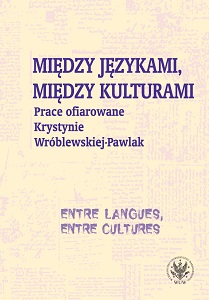
The book discusses language and cultural contact from different research perspectives: linguistic and sociolinguistic, glottodidactic, translational and cultural. The authors analyse the relations between language and identity among inhabitants of multilingual border regions, and among emigrant female writers of Jewish descent. They also reflect on cultural metissage on the example of Poland and Haiti, culturemes in literary translation and the variant of English used in the Polish Matura Exam. The volume contains articles in Polish, French and English.
More...
The book analyses the literary description of the cosmos in Edward Stachura’s works. It emerges from scientific knowledge, but is strongly imbued with metaphysical and anthropological senses. In poet’s works celestial bodies are an important element of the mythical world structure, linked to poeticizing reality by the protagonist who – observing the sky and flaunting his astronomical knowledge – is, at the same time, searching for sacrum in nature. He constantly engages in a dialogue with the surrounding reality, which makes him know himself and the nature better.
More...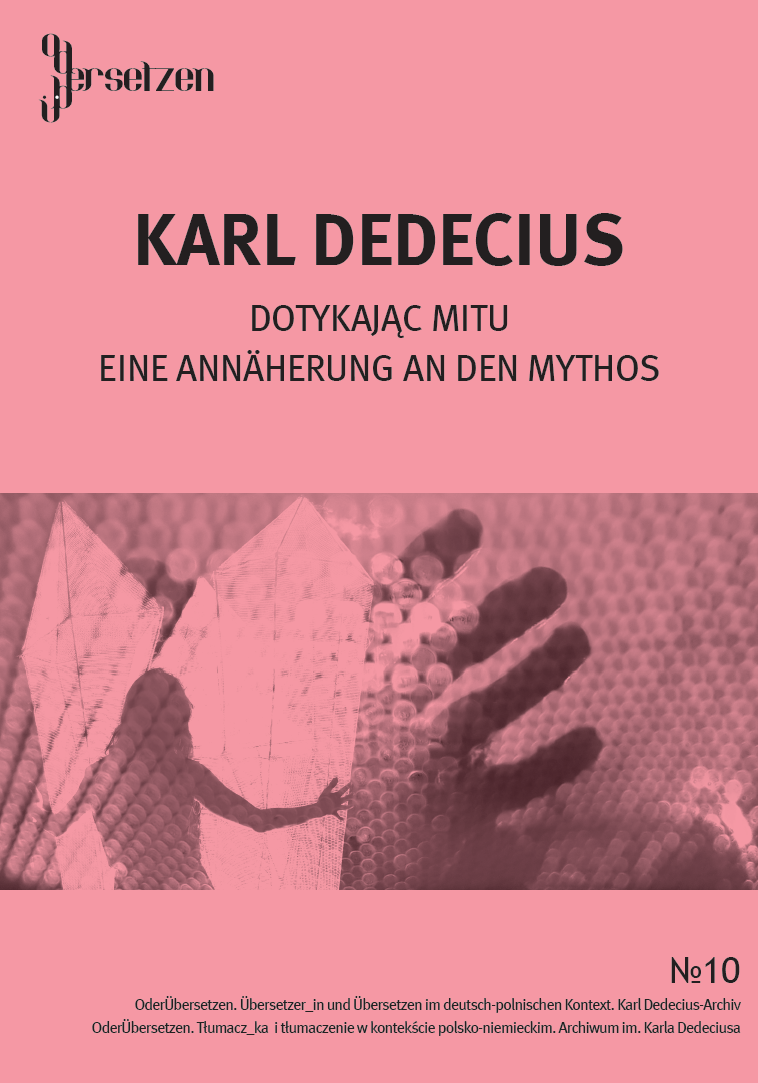
The volume we are presenting to you marks a double anniversary: firstly, it is our 10th publication, counting from the inaugural issue in 2010, and secondly, it celebrates one of the most eminent translators of Polish literature into German – Karl Dedecius, whose birth centenary was on 20 May 2021. The collection brings together many texts whose authors try to approach the "myth of Dedecius" either in their recollections or by taking a critical and fresh look at his work from a contemporary perspective. It includes several articles presenting recent reflections on translation studies between Poland and German-speaking countries.
More...
Languages of Contemporary Literature is a collection of studies which taken together comprise an original map of the most interesting styles, idiolects and language practices of contemporary literature that are of import in both artistic and socio-political terms. The five parts of the book, each devoted to a separate aspect of literary linguistics, are: Sociologies, Dictionaries, Incarnations, Liturgies, and Creations. The authors undertake to interpret ways of appealing, expressing and storytelling in literature, based on a number of emblematic works (by writers including Miguel Ángel Asturias, Christian Skrzyposzek, Zyta Rudzka, and Tomasz Pułka).
More...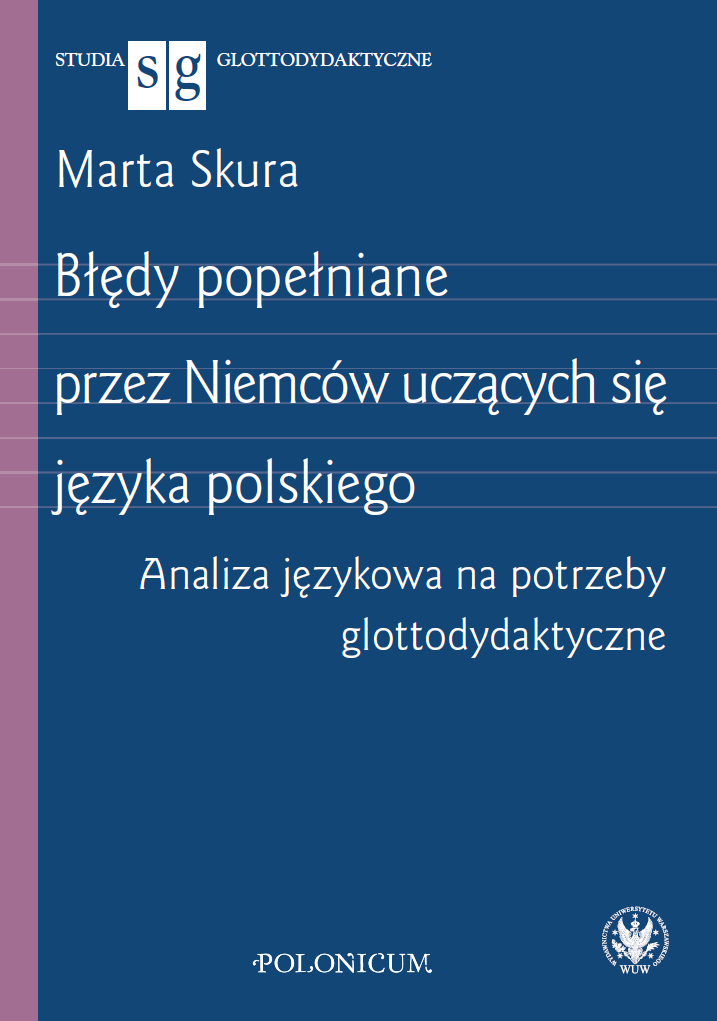
The monograph presents the classification of the most common errors made by the Germans in Polish and their detailed analysis in order to determine errors characteristic of this group. The analysis allows to form hypotheses regarding the sources of the errors, which are investigated using a list of interdependencies between the level of Polish language fluency and the type and/or source of the errors. The author also provides a list of issues which should be included in Polish language teaching programmes for German native speakers.
More...
The work responds to needs of our times (signum temporis) and is the attempt of understanding the old-Ukrainian baroque works of 16th and 18th centuries from the point of view of anthropology and with application of traditional methods, narrative elements, hermeneutic and comparative study.
More...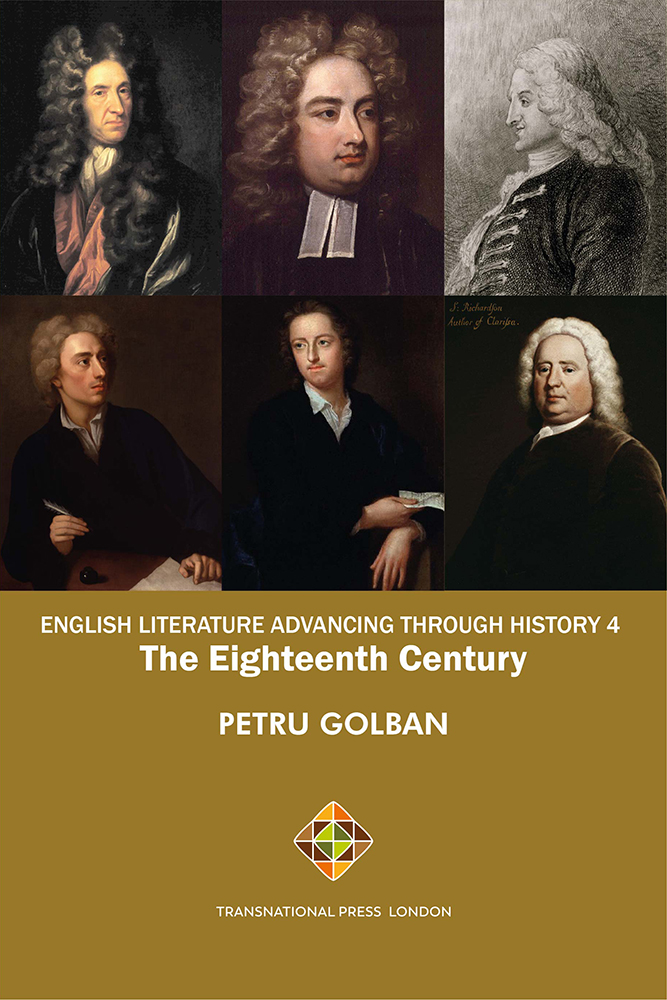
It appears that literary work possesses eternal temporal validity due to its autonomous aesthetic value, whereas criticism provides points of view having temporary and transitory significance. Despite such claims, the vector of methodology in our series of books, dealing with the history of English literature, relies on Viktor Shklovsky, T. S. Eliot, Mikhail Bakhtin, and especially Yuri Tynyanov, whose main reasoning would be that literature is a system of dominant, central and peripheral, marginalized elements – to us, “tradition” (centre) versus “innovation” (margin) engaged in a “battle” for supremacy, demarginalization, and the right to form a new literary system – and the development or historical advancement of literature is the substitution of systems. Roman Jakobson and French structuralism, on the whole, later Linda Hutcheon, with her “system” and “constant”, and Bran Nicol with the “dominant”, to say nothing about Itamar Even-Zohar and his theory of polysystem, to a certain extent Julia Kristeva, and even Homi Bhabha – as well as our humble contribution, we would like to believe – maintain Tynyanov’s line of thinking and concepts alive, which have developed and emerged nowadays more like a kind of “neo-formalism”. Focusing on literary practice, applying critical theory and emerging from within our own teaching experience, the books in the present series are theoretical and surveyistic, like a monograph, whereas their more practical and text-oriented aspect should appeal as a student handbook for didactic purposes, in which certain literary works belonging to various writers of different trends, movements, and periods are analysed and compared with regard to their source, form, thematic arrangements, ideas, motifs, character representation strategies, intertextual perspectives, structural or narrative techniques, and other aspects.
More...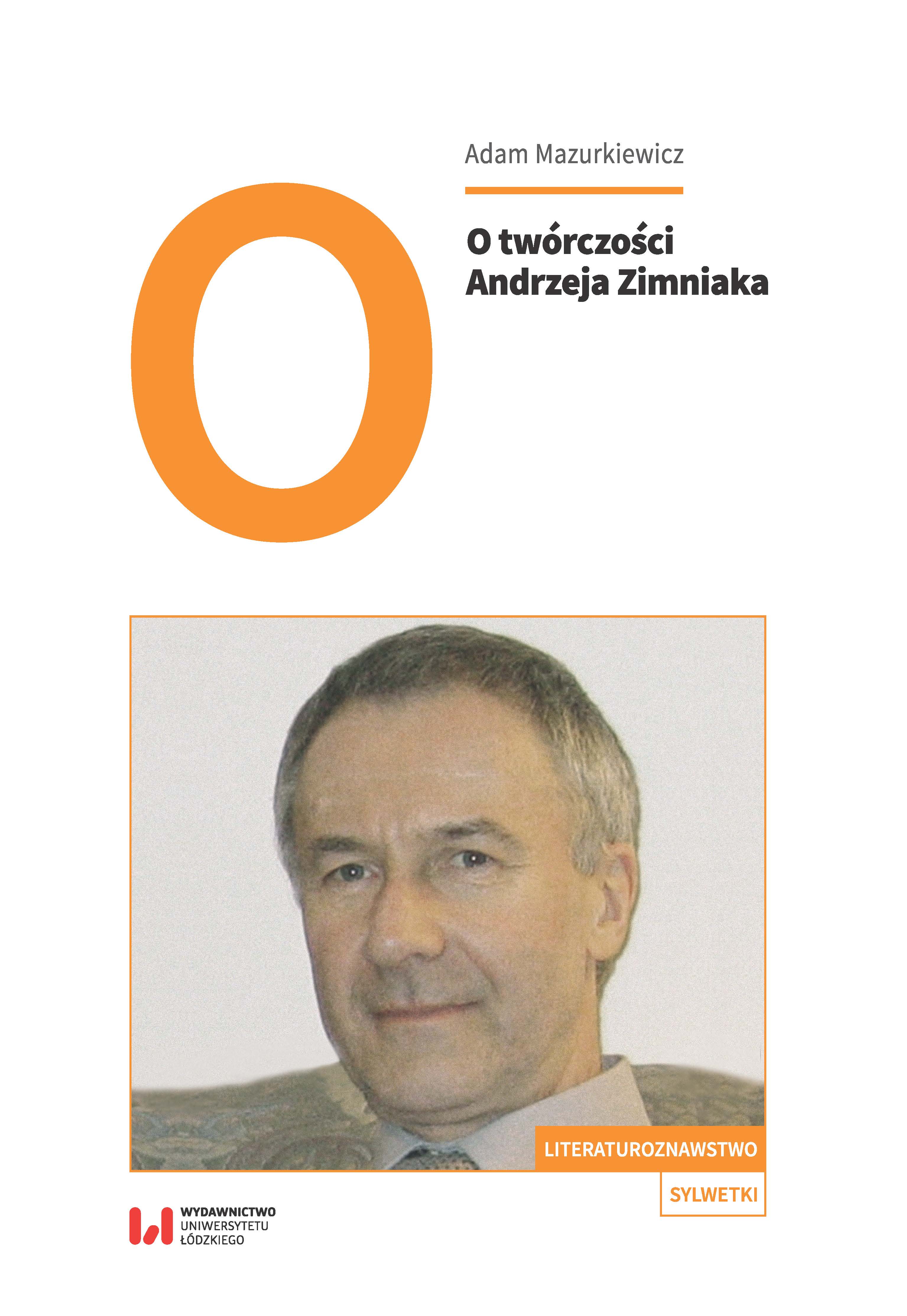
The monographic outline is devoted to the work of Andrzej Zimniak. He is a writer who has been active creatively since 1980. Not only the most well-known aspect of his writing, i.e. science fiction, is included; the artist's popular science essays were also recalled, which is combined with fiction and not very well-known poetry (Zimniak is the author of one volume, entitled “Fraszki rubaszne” [Epigrams coarse], 2012). The overriding goal of the monograph was to show the evolution of selected motifs, the most characteristic of Zimniak's prose, which at the same time are reflected in the popular science reflection of this writer (these include m.in the possibility of contact with extraterrestrial civilization, potential ways of human self-evolution to the level of “homo superior”, ecological themes and reflection on the challenges posed by expansive – and at the same time less and less controllable – technological progress. The issues listed here have been discussed in the broad context of civilizational, social and political changes, which significantly affect Zimniak as a writer and popularizer of science, active from 1980 to the present day. This context is accompanied by a reconstruction of the evolution of the writer's philosophical and anthropological views, which are a reflection of the times in which he created.The monograph was accompanied by a bibliography constructed in such a way that it not only attested to the works referred to in the considerations. First of all, it is to be a starting point for the reader's own reading searches interested in deepening knowledge on the topics discussed in the study.
More...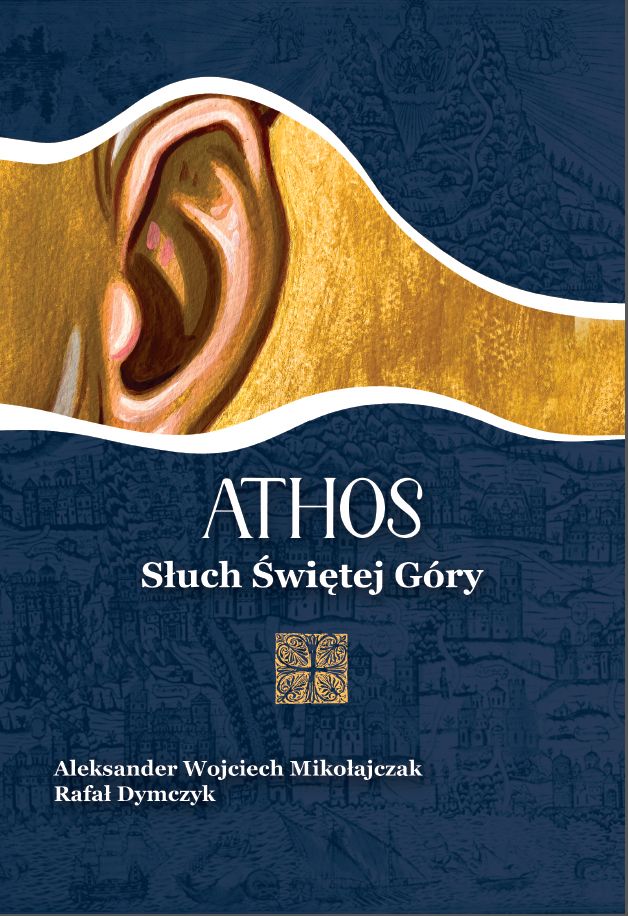
The inquiries presented in this monograph cover the audible dimension of the religious and cultural heritage created by the Orthodox monastic communities that have existed for a thousand years on the Holy Mount Athos in Greece. The research shows the scope and method of using the sense of hearing and sounds as creators and receptors of material and spiritual reality, manifested in liturgical singing, art, as well as in mysticism, prayer and the everyday way of life of monks. It is also about the specificity of the church architecture, subordinated to the acoustics of the voice. The scale of the involvement of hearing in the creation and interpretation of Athos reality is determined by two factors – the extraction of sounds from the creations of nature, the human vocal apparatus and the works of human hands. As a result of the auditory integration of the world of sounds, the acoustic landscape of the Holy Mountain is created. It is an expression of the emotive perception of reality, which thus acquires a deeply human dimension. It fits in with the metaphysical perspective of experiencing God in sonic hierophany. The use of the sense of hearing in this experiencing the Athos sacrum is described in the following chapters, taking into account 5 aspects of the sound landscape of the Holy Mountain: (1) the specificity of the auditory experience of the sacred, (2) the characteristics of silence as a space of hesychasm, (3) voices of nature, (4) sounds produced in the space of culture, (5) liturgical singing.
More...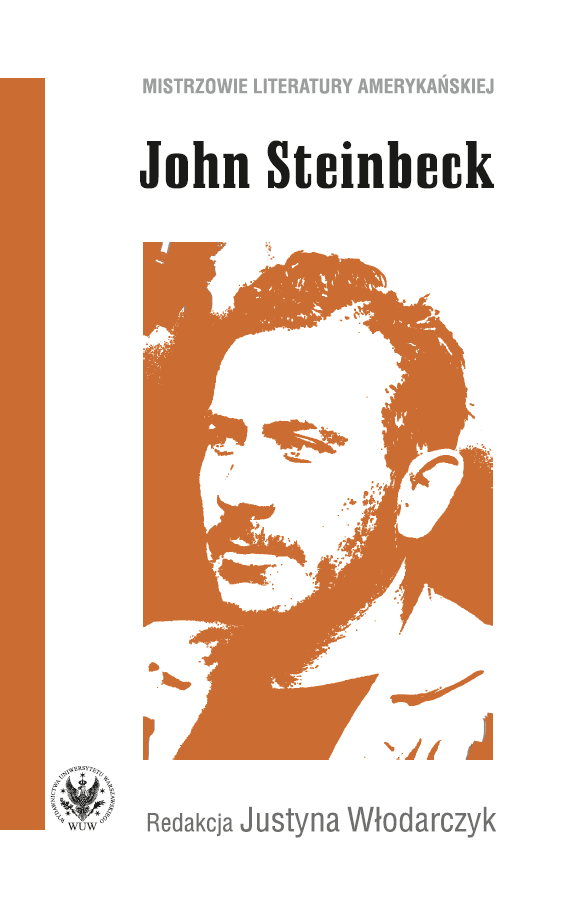
One of the most prominent American writers of the 20th century. Author of many novels, including "Tortilla Flat" (1937), "The Grapes of Wrath" (1939), and "East of Eden" (1952). In 1940, Steinbeck received the Pulitzer Prize (for "The Grapes of Wrath") and, in 1962, the Nobel Prize (for all his writings). Readers have valued Steinbeck for his insightful critique of the American Dream and for his heartfelt depictions of common people. However, critics have accused him of excessive political engagement and sentimentalism. No works of literary criticism devoted solely to Steinbeck have been published in Poland until now. This volume, participating in the international revival of critical interest in the work of this American writer, reminds the reader of the significance of Steinbeck’s literary output.
More...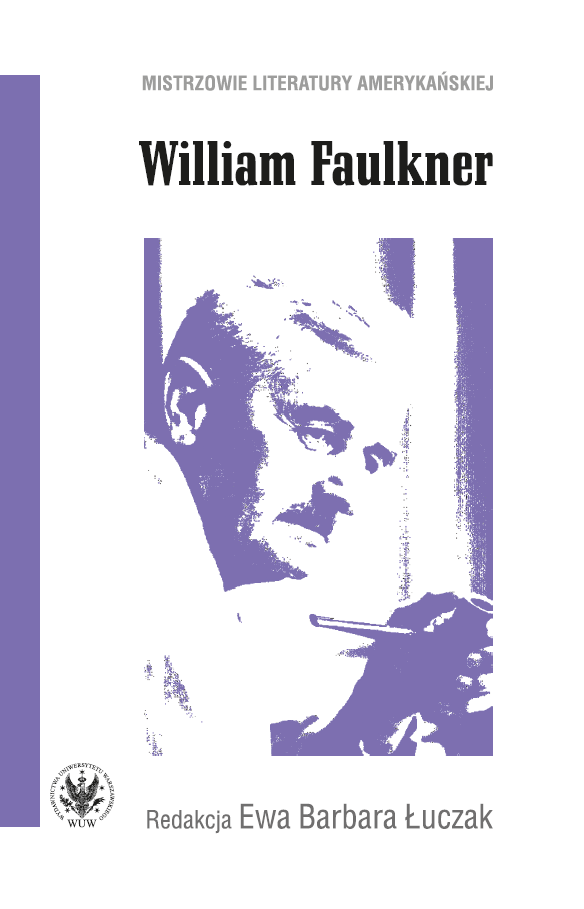
An expert stylist and original experimenter, promoting the stream of consciousness method, devoted his works to the American South. He inspired such writers as William Styron, Mario Vargas Llosa, Alberto Moravia, Toni Morrison. In 1949 he received the Nobel Prize in Literature.
More...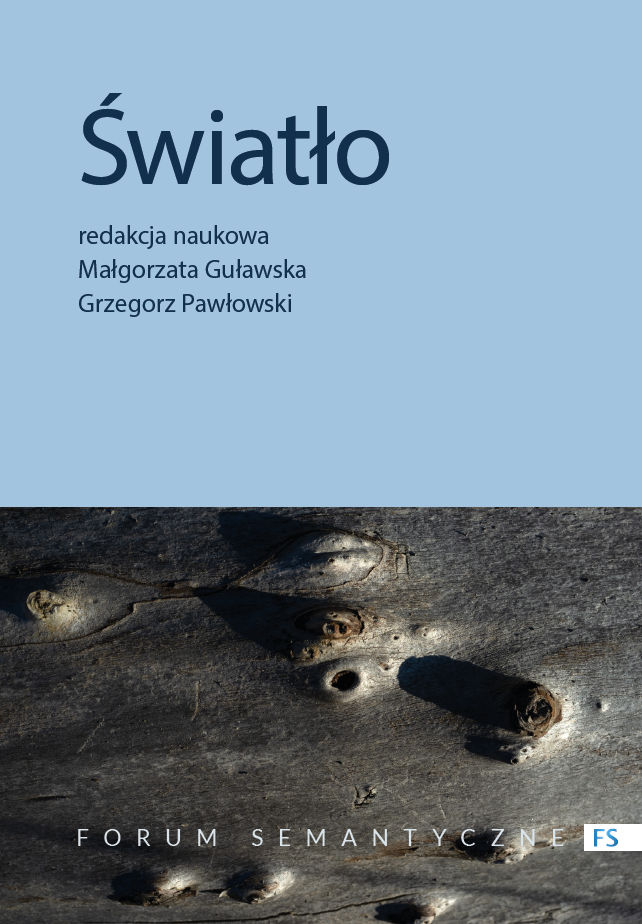
The publication presents a comprehensive and multifaceted picture of light in language, medicine, physics, philosophy, culture and art. By drawing synthesis and organizing knowledge, the book outlines the possibilities for modern discourse on light and opens new fields of exploration. The texts presented in the volume are an absorbing journey through seemingly incongruous disciplines, times and cultures.
More...
This commemorative book is a collection of articles written by co-workers and colleagues of Professor Anna Dutka-Mańkowska to mark the 40th anniversary of her research work at the Institute of French Studies at the University of Warsaw. Their subject matter touches upon Professor’s main interests: poetry, discourse analysis, traductology and other branches of linguistics. The publication also contains articles on literary studies and memoir texts.
More...
The topic of research in the monograph is the work of N.G. Kuzmicha “My uncle”, which was published in the newspaper "Lodzinskij Listok" in 1896. It is a remake of Alexander Pushkin's poem Eugene Onegin. The work was discussed in terms of its genre form - remake and confrontation with Pushkin's prototype. The author develops the works in Lodz, and the characters are known from Pushkin's poem, but differ from these prototypes in character, appearance and others. The work of Kuzmich is one of the regional adaptations of “Eugene Onegin”, which in this case is considered in conjunction with the multicultural, industrial Lodz of the late 19th century. The monograph presents the most widely read and helpful Russian-language newspaper published in Łódź - "Lodzinskij Listok" (1894-1914), in which Kuzmich study was published. The remake as a form of reference to the classics as well as remakes and continuations of Alexander Pushkin's works “Eugene Onegin” were also discussed. The literary frame of the work “My uncle” and the adequate introductory fragments present in Pushkin's original were also analysed. The image of Lodz presented in Kuzmich’s work and in the columns of the newspaper "Lodzinskij Listok" was also considered. In the analytical and descriptive part of the monograph, attention was focused on the three main characters of Kuzmich work: uncle, Tatiana and Eugene, and their prototypes created by Pushkin. A separate chapter is devoted to the narrator who plays a role in the work, taking into account the traditional, omniscient narrator, but also, like the characters, in their world and does not always reveal other information about them. The work is finalized with an appendix to my original text by uncle N. G. Kuzmich and its translation into Polish.
More...
The book about the transcendent cinema of Darren Aronofsky takes the reader on a journey through the selected filmography of this outstanding American director. A monograph devoted entirely to his extraordinary work, which among film experts and film audiences has both a group of devoted admirers and critics. A strong, even anarchist accent falls here on the type of film hero presented, living on the margins of society and consciously rejecting its normative structures. The films, as well as the literature to which the book refers, are an expression of a critical attitude towards symbolic violence and the imposition of creatively limiting cultural norms on the individual, requiring such ordering such and no other understanding and experiencing the surrounding world. An astute observer of Darren Aronofsky's work will notice the existence of metaphysical problems in it, sometimes directly directed towards religious issues. We can call this kind of cinema transcendent. This cinema is only seemingly pessimistic in its meaning. It is worth looking for mythical stories to try to hear and understand what they have to offer us. It is worth turning to transcendence and trying to express the inexpressible, also in the art of film, as does Darren Aronofsky, who wants to be a trustee of great mythical narratives. These features, so characteristic of the director, can be seen, to a greater or lesser extent, in all his films, especially those referred to in this monograph. It will be interesting for the reader who expects from contemporary cinema something more than unsophisticated entertainment and wants to go beyond its ludic dimension.
More...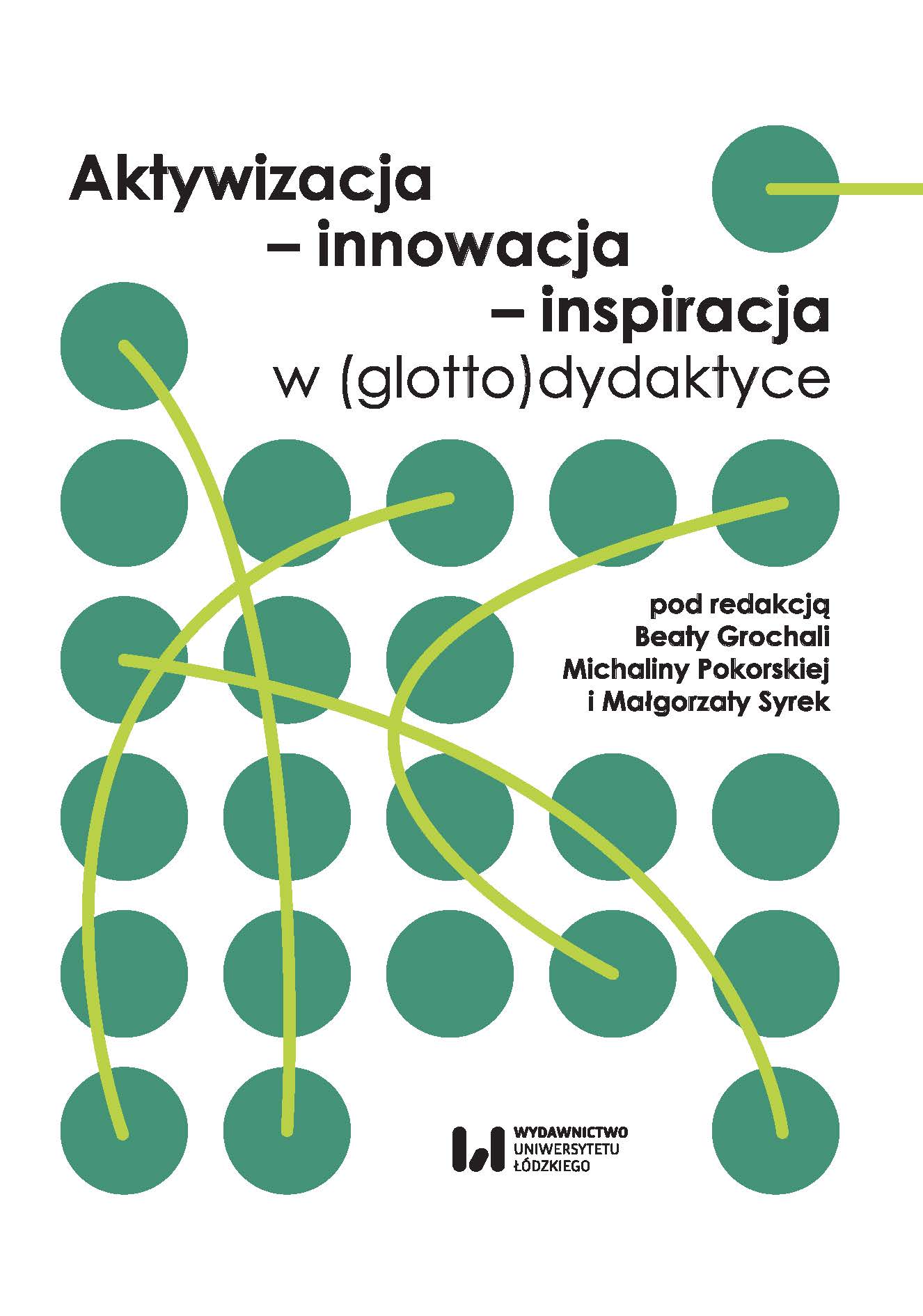
Artykuły w tomie umieszczono w obrębie dwóch części. Pierwsza, pt. Aktywizacja i innowacja a nauczanie zdalne, zawiera sześć artykułów poświęconych różnorodnym aspektom nauczania zdalnego: aplikacjom, kanałom na YouTube, portalom edukacyjnym pomocnym w nauce języka polskiego jako obcego lub języków obcych oraz opisom cennych doświadczeń nauczycieli w pracy zdalnej. […] W części drugiej, pt. Inspiracje a metody nauczania, znajduje się osiem artykułów o rozmaitym charakterze. Autorzy prezentują w nich różnorodne inspiracje (psychologię pozytywną, warsztaty z dociekań filozoficznych), strategie, metody aktywizacji i samooceny, a także analizy materiałów dydaktycznych oraz propozycje metodyczne do zwrócenia uwagi na trudności nauki w Polsce dzieci reemigrantów. Z recenzji dr hab. Agaty Małyski, prof. UMCS. Autorzy poszczególnych tekstów poszukują nowych narzędzi w nauczaniu języka polskiego i dociekają ich skuteczności, sprawdzając je przez pogłębioną analizę teoretyczną i praktyczną. Są to bardzo ważne opisy, które wynikają nie tylko z praktycznego doświadczenia lektorów, lecz także z refleksji teoretycznej czy przynajmniej zbadania efektywności przez opis wyników ankietowych. […] W dużej części artykuły dotyczą metod aktywizacji w nauczaniu zdalnym, które pozostanie z nami również po wygaśnięciu pandemii. Przedstawione inspiracje na pewno będą wykorzystane przez lektorów czy nauczycieli nie tylko języka polskiego. Z recenzji dr hab. Anny Majewskiej-Tworek, prof. UWr
More...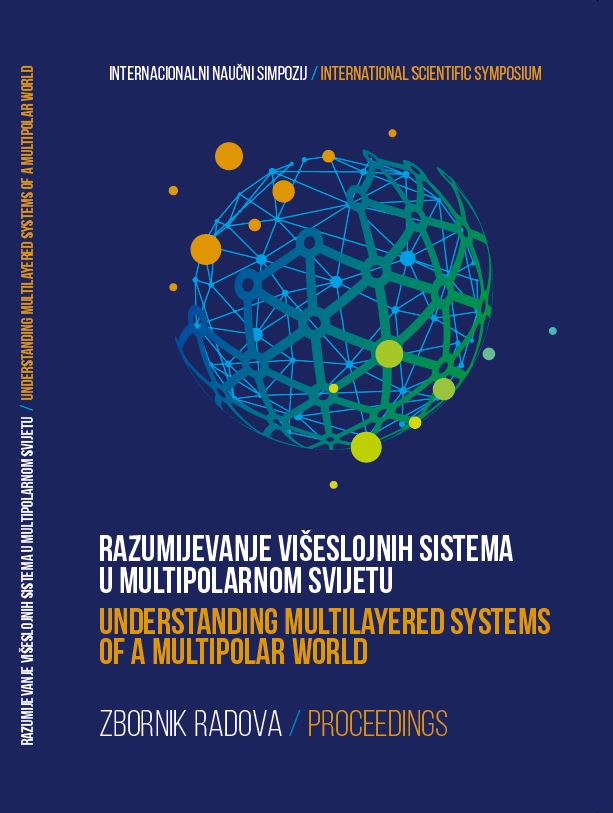
Zbornik radova koji je pred vama je rezultat simpozija koji je realiziran kroz četiri interdisciplinarne panel diskusije iz oblasti filozofije, prava, političkih nauka i međunarodnih odnosa, jezika i književnosti i društvenih nauka. Na simpoziju su radove izložili eminentni profesori i istraživači iz nekoliko zemalja.
More...